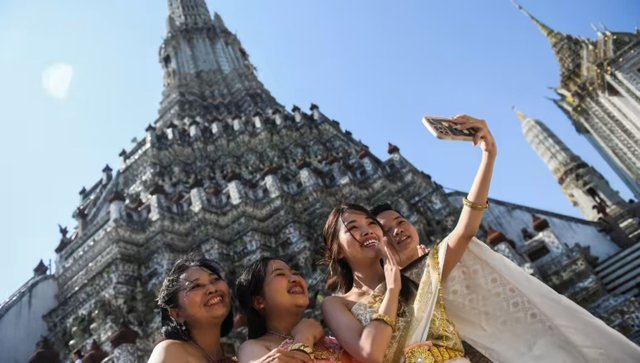Thailand to Charge $9 Tourist Tax From June in Sustainability Push

BANGKOK — Thailand’s government has approved new fees on foreign tourists, due to take effect on June 1, as travel demand recovers in the tourism-dependent economy.
Each foreign visitor entering the country by air will be charged 300 baht ($8.84), while those arriving by land or boat will pay 150 baht. Day travelers and transit passengers are exempted, as are children under 2 years old.
The tax will not affect foreigners with Thai work permits or travelers with diplomatic and official passports.
Phiphat Ratchakitprakarn, the tourism and sports minister, announced that the cabinet had approved the tax on Tuesday. The estimated collection of 3.9 billion baht this year will be used as accident insurance for tourists, who used 300 million to 400 million baht worth of services at government hospitals from 2017 to 2019.
The fees will also go toward repatriating the remains of foreign travelers who die while in the country.
Thailand last year dropped a requirement for medical insurance worth at least $10,000, among all other COVID-era entry requirements. The government aims to welcome 25 million tourists this year, just over half the 2019 total, but more than twice the 11 million arrivals the country saw in 2022.
The new entry fee is separate from the departure tax that has been included in airfares for decades. The exit fee varies based on the airport, with Bangkok’s main Suvarnabhumi Airport charging the most, at 700 baht.
The entry tax plan has received mixed responses from the country’s tourism industry, which at its pre-pandemic height contributed a fifth of gross domestic product.
Some operators fear the additional cost will dissuade some tourists from choosing Thailand. Others see it as an opportunity to fund sustainable growth in the tourism sector, while reducing the burden of traveler emergencies on public coffers.
Since the pandemic, the Tourism Authority of Thailand’s focus has shifted from increasing traveler volume to attracting long-stay and high-spending tourists.